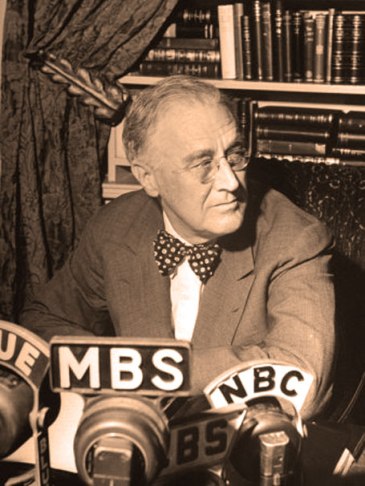We Can Still Learn a Lot from FDR
By Chuck Sudo in News on Sep 5, 2011 6:00PM
 From the rhetoric in Washington to Scott Walker's overt assaults on collective bargaining in Wisconsin, to the rescinding of pay raises to labor by Gov. Quinn and Mayor Emanuel here at home, the labor movement has been besieged in a way it hasn't been since the last time the nation faced a prolonged recession.
From the rhetoric in Washington to Scott Walker's overt assaults on collective bargaining in Wisconsin, to the rescinding of pay raises to labor by Gov. Quinn and Mayor Emanuel here at home, the labor movement has been besieged in a way it hasn't been since the last time the nation faced a prolonged recession.
The more things change, the more they stay the same: We sometimes wonder how Franklin Delano Roosevelt would have handled the likes of John Boehner, Eric Cantor, Jim DeMint and the Tea Party. We suspect we would have had a rough row to hoe.
FDR faced staunch opposition to the New Deal. that the merits of its legacy programs such as Social Security still face opposition shows how the past directly influences the present. But FDR was the right leader at the right time. And he was a master speaker who was capable of using his "Fireside Chats" to communicate directly to the American people in a way that Barack Obama still has problems doing.
Take, for instance, his Labor Day 1936 radio address (Sept. 6, 1936), where FDR recounted a tour of drought-stricken states and reminded farmers and laborers of how they rely on one another two months before the election; he easily carried both agricultural and industrial states.
“The Fourth of July commemorates our political freedom,” he said. “Labor Day symbolizes our determination to achieve an economic freedom for the average man which will give his political freedom reality.”
Our current economy mirrors that of 1936 save for one indicator - the executives who are cutting the most jobs are also getting the biggest payouts.
On Labor Day 1941 (Sept. 1, 1941), with the United States on the brink of entering World War II, Roosevelt sensed the political winds shifting and tied labor into the growing war movement in an attempt to win over the isolationists who didn't want the nation to enter the war.
“On this day, this American holiday, we are celebrating the rights of free laboring men and women. The preservation of these rights is vitally important now, not only to us who enjoy them, but to the whole future of Christian civilization.”
Yes, our political leaders even pandered to religious interests 70 years ago. As Studs Terkel told Art Shay all those years ago, it's all connected. Three months later the Japanese attacked Pearl Harbor, making even the most fervent opposition by isolationists a moot point.
As we prep our grills and fire pits this afternoon and seize the final fleeting hours of this holiday weekend, let's also remember the laborers and workers who helped make the 40-hour work week, among other things, possible.